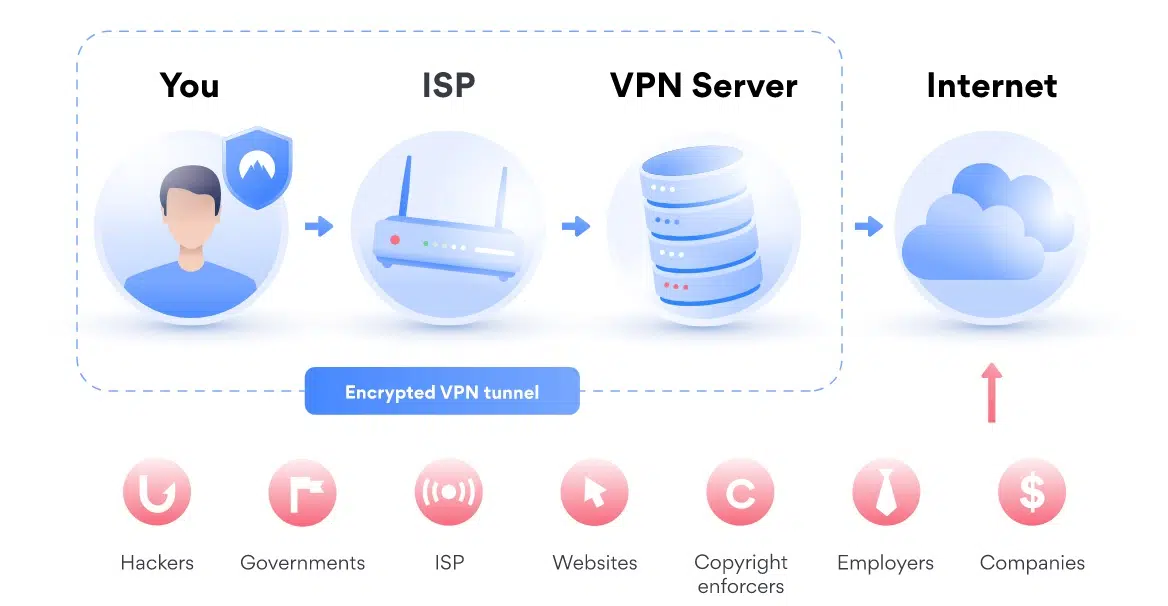Introduction
After launching a new website or mobile application, the next step is usually testing it across multiple locales. This shouldn’t be a problem if your browser has no active access restrictions to those locations. But what if traffic from your state or country is banned in the locations where you wish to test-drive your new product? In such scenarios, you have two primary options: arranging screen-sharing sessions with friends in those regions or integrating your browser with either a VPN (Virtual Private Network) or a SOCKS 5 proxy. Vclubshop
In this article, we will delve deep into the differences between VPNs and SOCKS 5 proxies, helping you make an informed choice about which one best suits your needs.
Understanding VPN and SOCKS 5 Proxy
What is a VPN?
A Virtual Private Network (VPN) is an internet application or software that provides a secure connection to remote locations over the internet. VPNs are valuable for accessing restricted websites, such as the dark web. They establish an encrypted virtual tunnel for data packets to travel through, ensuring that you can browse freely without compromising your online security or privacy.
Businesses also use VPNs for testing purposes. For example, a mobile app developer can use VPN software to place their browsing activity in a different country or state, allowing them to experience how their new app would function in geo-targeted areas.
What is a SOCKS 5 Proxy?
A SOCKS 5 proxy server works in a manner similar to VPNs. These services redirect web traffic via HTTP proxy servers. SOCKS stands for Secure Socket, reflecting the original intention of SOCKS 5 proxy extensions. Like VPNs, there are various sources to obtain SOCKS 5 proxies, with providers like Vclub offering cutting-edge SOCKS extensions capable of rerouting web traffic across multiple channels simultaneously.
Differences Between VPN and SOCKS 5 Proxy
Speed
The primary difference between a VPN and SOCKS 5 proxy concerns speed. SOCKS 5 proxies are generally faster than VPNs, offering smooth and lag-free website access. If website load speed is a crucial factor for you, especially as an online entrepreneur, a SOCKS 5 proxy may be the preferred choice.
SOCKS 5 proxies excel in all speed aspects, including upload and download speeds, as well as responsiveness (ping time). They outperform not only VPNs but also regular proxies like HTTPs.
Safety
While SOCKS 5 proxies may provide faster website load speeds, they trade-off speed with safety. VPNs are known for their strong encryption of data packets’ virtual pathways, which can slow down the connection slightly. However, they compensate for this with maximum online safety and privacy.
One potential concern with VPNs is logging, as some services may log your browsing and downloading history. Depending on your activities, this logged data could pose privacy risks.
Efficiency
A VPN connection masks your local IP while encrypting all internet traffic to and from your device. This adds an extra layer of privacy and can make incoming traffic appear to originate from a different region.
On the other hand, SOCKS 5 proxies are application-specific, working only for the application you’re using at the moment. To enhance SOCKS 5’s efficiency, you should activate the service on all relevant software.
Number of IPs Provided
VPNs and SOCKS 5 proxies also differ in the number of IPs they can support. VPNs typically provide a single IP address, which is secure but may require contacting the provider for changes. This limitation can be problematic if you need multiple IP addresses for tasks like web scraping or creating social media profiles, and it increases the risk of IP bans.
In contrast, many SOCKS 5 proxies offer multiple IP addresses. While they remain application-specific, having multiple IPs reduces the risk of all your proxies being restricted from specific websites.
When to Use a VPN
VPNs are ideal for various use cases, including:
- Accessing restricted websites: VPNs can bypass geolocation restrictions and access content not available in your region.
- Enhancing online privacy: VPNs encrypt your internet traffic, protecting your data from eavesdroppers.
- Secure public Wi-Fi: When connected to public Wi-Fi networks, VPNs add an extra layer of security.
- Testing geo-targeted services: Businesses can simulate user experiences in different regions using VPNs.
When to Use a SOCKS 5 Proxy
SOCKS 5 proxies are suitable for specific scenarios, such as:
- Faster web browsing: If speed is critical, SOCKS 5 proxies provide a faster option.
- Application-specific needs: SOCKS 5 proxies work well for tasks that require a specific application.
- Multi-channel routing: SOCKS 5 proxies can reroute web traffic across multiple channels simultaneously.
Choosing the Right Option
The choice between a VPN and SOCKS 5 proxy ultimately depends on your specific needs. If you prioritize speed and need a faster connection, especially for web browsing, a SOCKS 5 proxy may be your best choice. On the other hand, if security and privacy are paramount, a VPN is the better option.
Conclusion
VPNs and SOCKS 5 proxies are valuable tools for browsing anonymously and accessing geo-restricted content. Their differences lie primarily in speed and online privacy. The choice between the two comes down to your individual requirements and priorities.

